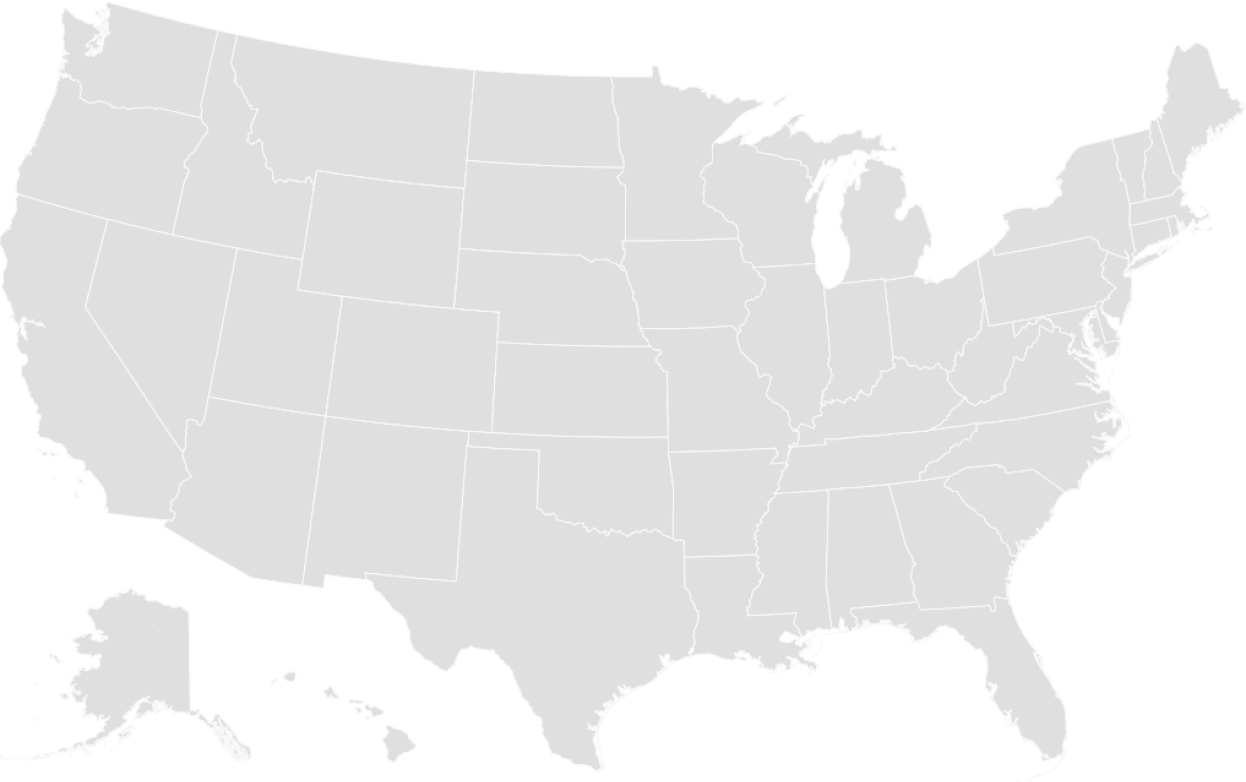Any accident that results in a person’s death should be investigated for wrongful death.
Wrongful deaths can happen anywhere – in the hospital, in a vehicle, at work, or on someone’s property.
8 Most Common Wrong Death Reasons
Here are the most common reasons for wrongful deaths.
That list is not exhaustive. If you think your family member’s death was the result of negligence, it’s important to speak with us right away.
These are just a few of the common questions that may arise as you contemplate bringing a wrongful death lawsuit to a wrongful death attorney.
We know how confusing and overwhelming the process can be, so if you believe you have a wrongful death case in Texas or Oklahoma, please feel free to schedule a consultation with our team of Dallas wrongful death attorneys. We can answer any wrongful death questions you may have and will bring our years of impassioned experience to helping you determine whether you have a wrongful death case and what it would entail.
Who Can File a Wrongful Death Claim?
In Texas, a deceased person’s spouse, children and/or parents can file a wrongful death lawsuit against any person or company responsible for the death of a loved one.
When Can a Wrongful Death Lawsuit be Filed?
Wrongful death lawsuits can be filed following many kinds of situations.
- medical malpractice
- defective medical devices
- dangerous prescription drugs
- automobile, bus, motorcycle and truck collisions
- industrial and workplace injuries
The time limits may vary depending upon the type of wrongful death case. It is best to seek legal counsel as quickly as possible.
How Long Do I Have to File a Wrongful Death Claim? (What is the Statute of Limitations?)
There are laws that limit the time you have to file a wrongful death lawsuit. Some people make the mistake of waiting too long before they contact an attorney. Many people believe they have two years from the date of their loved one’s death, but this can be very tricky. In many instances, the statute of limitations can run sooner than that and in any case, you want to hire an attorney as soon as possible who can promptly investigate your case while the evidence is still fresh in witnesses’ minds and before any vital evidence may be destroyed. Of course, there are many things to deal with when a loved one has suddenly been taken from you, but contacting a lawyer promptly is in your best interest.
What Type of Damages Can I Claim in a Wrongful Death Case?
The purpose of a wrongful death claim is to compensate surviving family members and the estate for any losses they experience as a result of a person’s death. The types of damages recoverable include:
- Medical bills for your loved one prior to their death
- Funeral and burial expenses
- Monetary damages for your grief and mental anguish
- Loss of financial support your loved one provided
There are two categories of claimants. The surviving family members (spouse, children and parents only) have what is referred to as wrongful death claims. These claims are for the emotional anguish, grief, loss of companionship you have suffered. As well, there are often economic losses, referred to by lawyers as “pecuniary losses.” These damages are for things such as loss of financial support and loss of household services.
The decedent’s estate also has claims for medical bills incurred to treat the injuries, conscious pain and suffering of the decedent prior to death, as well as funeral and burial expenses. This is commonly referred to as a survival claim.
About Wrongful Death Damages
The amount of money that a court of law awards someone for injury or loss is called “damages.” In a wrongful death suit, there are two types of damages you can recover: Economic and noneconomic.
Economic Damages
Economic damages include compensation for monetary losses and expenses, such as medical care and lost earnings. Noneconomic damages include compensation for non-monetary losses like lost companionship, grief, and pain and suffering.
Noneconomic Damages
Compensation for noneconomic damages due to a wrongful death is a sensitive issue as it does not easily translate into dollar amounts. After all, there is no way to place a monetary value on a person’s life. We have decades of experience helping families recover what is just and fair for their senseless and tragic loss. We have helped many people in a similar situation to what you may be going through.
Do I Need to Go Through Probate Court as Well for a Wrongful Death Case?
We work closely with probate lawyers to coordinate our strategies on both the civil case and probate of the estate. Whether it is necessary in your particular wrongful death case can only be determined after a consultation.
Should I Have an Autopsy Performed if I Suspect Wrongful Death?
Yes, absolutely. As the plaintiff in a wrongful death suit, you have the burden of proving the cause of death. No matter how clear the cause of death may seem, it helps to have documented proof from a medical professional as to why your loved one died.
You should have an autopsy performed even if the hospital or coroner says one isn’t necessary. Depending on what happened, the people at fault may have a vested interest in talking you out of one. You should purchase a private autopsy in this case. There are services that will provide private autopsies in this instance.
Should the Family in a Wrongful Death Case Use One Lawyer, or Should Everyone Have their Own Attorney?
We advise families to cooperate and go to court as a collective unit in a wrongful death case. If everyone works with their own lawyer to their own ends, it can be difficult to create an orchestrated strategy. We strongly prefer that the family make a united front against the wrongdoers in a wrongful death suit.
What if We Can’t All Agree?
In some instances, there are valid reasons why the family cannot all “get on the same page.” In these instances, we work hard to prevent any negative family dynamics from detracting from the real issues that need to be focused on in the case. In most cases, the family agrees to hire one lawyer and they agree in advance to the division of any proceeds of their lawsuit.
In Texas, the law provides for certain relatives with a wrongful death claim to bring a lawsuit over the death of a loved one if the death was caused by the negligence of malfeasance of another person or entity.
Who Can Make a Wrongful Death Claim?
There are only certain people in Texas who can bring a claim for wrongful death, that is the surviving spouse, regardless of whether it’s a common law marriage or not; children, whether they be adult children or minor children, regardless of whether they’re natural or adopted children, as well as parents of the decedent, regardless of whether the decedent was adopted or natural child.
That group of people are referred to by statute as wrongful death beneficiaries.
In Texas, that group of people that I mentioned have claims for their grief as a result of the death of their loved one.
Loss of Companionship
This is an element of loss that the law reconizes. Something that’s called loss of companionship which speaks for itself; loss of consortium is for a spouse, which is the loss of the special and intimate relationship between the two.
Loss of Household Services
As well, wrongful death beneficiaries can also assert claims for things like loss of household services. A loss of household services means the things that the decedent contributed to the household that now someone has to go out and hire those services to be done.
An example of that–not to be stereotypical–includes a scenario where the husband did all of the yardwork and did all of the handyman work and the surviving spouse doesn’t know how to do any of that. She doesn’t have the skills to do it or may not be physically able to do it and has to hire all of those things out.
Another example might be that the surviving spouse is disabled in some way and relied on the decedent to do all of the driving and cooking and things of that nature.
Pecuniary Loss
There is also what’s called pecuniary loss and what that means is if the person that was killed was a wage earner, then that is a significant loss to the family. This is particularly important when the spouse is relying on the decedent to provide the income for the family and particularly important for children who have lost a parent and no longer have that wage earning parent there to support them.
Survival Claims
There is a separate aspect to wrongful death cases in Texas and these are called survival claims. These are claims that are usually brought in conjunction with wrongful death cases in Texas but these are not brought by the wrongful death beneficiaries, these are brought on behalf of the estate. Those claims are the medical bills that were incurred by the decedent prior to death.
So let’s say for example that someone was involved in a horrific vehicle accident, they were care flighted to the hospital, they were hospitalized, but they didn’t make it. Those medical bills would be a part of the estate’s claim. As well, the conscious pain and suffering that the decedent had and endured prior to his or her death is also something that is recoverable by the estate.
The estate, in other words, is bringing the claims that the decedent had prior to their death. Typically, what happens is that a separate probate proceeding will be initiated where someone is appointed the administrator of the estate.
Most Common Types of Wrongful Death Cases
There are more ways that these things can happen than you could probably list but the most common cases we see are people who were killed as a result of a medical mistake, people who were killed in car wrecks or truck wrecks or bus wrecks, or other kind of vehicle wrecks. Or industrial type accidents where someone was working on the job and as a result of the dangerous condition or dangerous piece of machinery, they were injured fatally.




